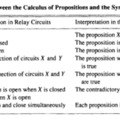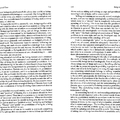Földes Károly írja a blogot
Part One:
"Deconstruction:
school or movement of literary criticism initiated by
Jacques Derrida in France, who, in a series of books
published beginning in the late 1960s, launched a major
critique of traditional Western metaphysics.
Deconstruction may be thought of as an examination of
methodology. Like Sigmund Freud's psychological
theories and Karl Marx's political theories, Derrida's
deconstructive strategies, which take off from
Ferdinand de Saussure's insistence on the arbitrariness
of the verbal sign, have subsequently established
themselves as an important part of postmodernism,
especially in poststructural literary theory and text
analysis. Though the deconstructive principles of
Derrida and later critics are well established, they
remain somewhat controversial.
The deconstruction of philosophy involves the
questioning of the many hierarchical oppositions--such
as cause and effect, presence and absence, speech
("phonocentrism") and writing--in order to expose the
bias (the privileged terms) of those tacit assumptions
on which Western metaphysics rest. Deconstruction takes
apart the logic of language in which authors make their
claims, a process that reveals how all texts undermine
themselves because every text includes unconscious
"traces" of other positions exactly opposite to that
which it sets out to uphold. Deconstruction undermines
"logocentrism" (literally, a focus on the word, the
original and originating word in relation to which
other concepts such as truth, identity, and certainty
can be validated; but understood more generally as a
belief in reason and rationality, the belief that
meaning inheres in the world independently of any human
attempt to represent it in words). It follows from this
view that the "meaning" of a text bears only accidental
relationship to the author's conscious intentions. One
of the effects of deconstructive criticism has been a
loosening of language from concepts and referents.".
To cite this page:
"deconstruction" Britannica Online.
<http://www.eb.com:180/cgi-bin/g?DocF=micro/163/11.html>
[Accessed 01 March 1998].
Part Two
"Derrida's thought is based on his disapproval of the
search for some ultimate metaphysical certainty or
source of meaning that has characterized most Western
philosophy. In his works he offers a way of reading
philosophic texts, called "deconstruction," which
enables him to make explicit the metaphysical
suppositions and a priori assumptions used even by
those philosophers who are the most deeply critical of
metaphysics. Derrida eschewed the holding of any
philosophical doctrine and instead sought to analyze
language in an attempt to provide a radical alternative
perspective in which the basic notion of a
philosophical thesis is called into question."
-------------------------------------------------------
To cite this page:
"Derrida, Jacques" Britannica Online.
<http://www.eb.com:180/cgi-bin/g?DocF=micro/166/22.html>
[Accessed 01 March 1998].



